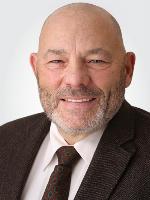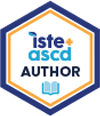

Event Information
CONTENT & ENGAGEMENT
• Teachers have always selected instructional strategies (think of Socrates’s dialogues, Jesus’s parables, the Medieval birth of lectures) to achieve their learning goals. And over the past fifty years, teachers, researchers, and policymakers have created, revised, and recast the different ways we design and deliver instruction. But with so many options, too many teachers slip back to too much teacher talk and not enough student engagement, questioning, or thinking. The need for all teachers to expand their instructional repertories has not changed since The Strategic Teacher was released nearly two decades ago, and this interactive session will immerse participants in some of the most reliable and effective research-based strategies.
TIME
• (10 minutes) Welcome Warm-Up + Why We Need a Repertoire of Research-Based Strategies
• (10 minutes) Mastery Strategies
• (10 minutes) Understanding Strategies
• (10 minutes) Self-Expressive Strategies
• (10 minutes) Interpersonal Strategies
• (10 minutes) Reflection + Next Steps
PROCESS
• In this interactive session, participants will actively learn by experiencing instructional strategies through direct modeling, exploring concepts through instructional activities, and participating in group questioning and discussion.
When published by ASCD, The Strategic Teacher (2007) introduced educators to twenty of the most valid and reliable research-based teaching strategies. Every strategy in this book has foundations in academic research and classroom practice, with clear benefits for student learning. Dr. Robert Marzano called it “A touchstone text, one of the very first documents in a new and exciting field where the science of teaching is perfectly aligned with the art of teaching and the wisdom of the teachers who practice it every day.” Since then The Strategic Teacher has been paired with the facets of Understanding by Design and the research framework of Classroom Instruction That Works.
The more things change in education, the more they remain the same. John Goodlad’s (1984) large-scale study of high schools found that 75% of class time was spent on instruction, with nearly 70% teacher talk, 5% student anticipation, and only 1% dedicated to student reasoning or opinion. Fast forward to Mehta & Fine’s (2019) look into deeper learning in schools, and the Harvard professors found a “disappointing reality” that was similar to Goodlad’s findings. Mehta & Fine “had hoped to be inspired, instead [they] felt profoundly disheartened.” What was true two decades ago is still true today—teachers need to build a repertoire of research-based strategies in order to engage all students in meaningful learning. They still need The Strategic Teacher.

